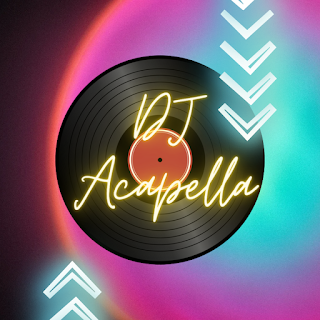How To Make Money From Your Music: Publishing Rights, Royalties, and More
1. Introduction
As a musician, you have a lot of options when it comes to making money from your music. You can sell physical copies of your music, perform live shows, or license your music for use in TV and film. But one of the most popular – and most lucrative – ways to make money from your music is by selling your publishing rights and collecting royalties.
In this article, we’ll explain everything you need to know about publishing rights and royalties, including how to make money from them. We’ll also give you some tips on how to maximize your earnings. So if you’re ready to learn more about how to make money from your music, read on!
https://unsplash.com/@paulfiedler
2. What Are Publishing Rights?
Publishing rights are the rights to a musical work, such as a song, which gives the publisher exclusive rights to commercially exploit the work in various ways. Generally, musicians will separate out the publishing rights from their master rights, which means that they sell the rights to their song separately from the actual recording of the song.
There are two main types of publishing rights: print and mechanical. Print publishing rights relate to the reproduction of the musical work in printed form (e.g. sheet music) and are typically only collected for traditional works, such as classical music. On the other hand, mechanical rights relate to the making and sale of recordings of a song, and this type of publishing is applicable to recorded music.
When you sell your publishing rights, you are essentially giving another individual or entity the right to exploit your music and collect the royalties associated with it. The publisher will then license the work on behalf of the writer and collect royalties.
https://unsplash.com/@robertoc95
3. What Are Royalties?
Royalties are payment made to a musician based on the use of their work. Generally, they are collected by the publisher, who is then paid a portion of the royalty income.
Royalties come in many forms. Performance royalties are payments made by a record label or venue each time a song is performed. Mechanical royalties are payments made for each time a song is reproduced for sale, for example, on CD, vinyl, or to stream online. Sync royalties are payments made for the rights to use a song for film, television, or video content. Lastly, digital performance royalties are payments made to rights holders for the use of music in certain kinds of digital services, such as streaming services or subscription-based music services.
By becoming a rights holder, you open yourself up to earning royalties from the work you create. When these royalties are collected, they are split between the artist and publisher according to the agreement they have. It is essential to understand how royalties work, so you can make sure you are getting the most out of the deals you make.
https://unsplash.com/@marcelalaskoski
4. Where Does the Money Come From?
The money for royalties comes from different sources. Radio, performance venues, streaming services, subscription services, and licensing fees. When radio stations play your music, they pay royalties to the publisher. Many performance venues are now also making payments, so if your music is played in a bar, a club, or a restaurant, you may receive royalties.
Streaming services, such as Apple Music and Spotify, pay royalties based on the number of plays. Subscription services, such as Pandora and Tidal, pay royalties each time the song is streamed and when an advertisement is played. Finally, when artwork or music are used for film, TV, and video game soundtracks, licensing fees will come into play. Artists and publishers can negotiate these licensing fees with production companies. When all these royalties are collected, they are split between the musician and producer.
It is essential for musicians to be informed about the various sources of revenue so they can maximize their income from the work they have created.
https://unsplash.com/es/@gabrielgurrola
5. How to Get Started
Now that you know where the money comes from and the different ways music can be monetized, it's time to get started! Here are the steps for getting started with making money from your music:
1. Register your music with your performing rights organization (PRO). This will help keep track of your royalties, licenses, and other income related to your music.
2. Get a publishing deal or set up your own publishing company. Having a publishing deal will make it much easier to collect royalties and licensing fees.
3. Join a performance rights group. This group will help you to get royalties from radio, TV and live performances.
4. Get an artist management contract. This will help to protect your rights and ensure that the people managing your career are getting you the best deals and maximum exposure.
5. Set up an online presence. Having an online presence will help promote your music and gain exposure. Start a website, create social media accounts, and use email campaigns to share your music with the public.
By taking these steps, you can start to make money from your music, and you'll be well on your way to having a successful music career.
https://unsplash.com/@dtruninger
6. Conclusion
Now that you know the basics of making money from your music, you have the tools and resources to begin your journey. By understanding the different forms of royalties, the ways you can make money from them, and the steps you need to take to get started, you are in a much stronger position to begin your musical career.
Remember, making money from your music is a long-term endeavor. You need to stay consistent, persevere, and stay patient in order to succeed. But once you start to see the rewards of your hard work, you'll be glad that you made the effort to learn about music publishing and royalties.
Good luck and happy music publishing!
Music publishing rights, music royalties, selling music, licensing music, physical copies, live shows, TV/film use, earning royalties, Music publishing, royalty collection, licensing music, physical music sales, live shows, royalties, TV & film licensing









